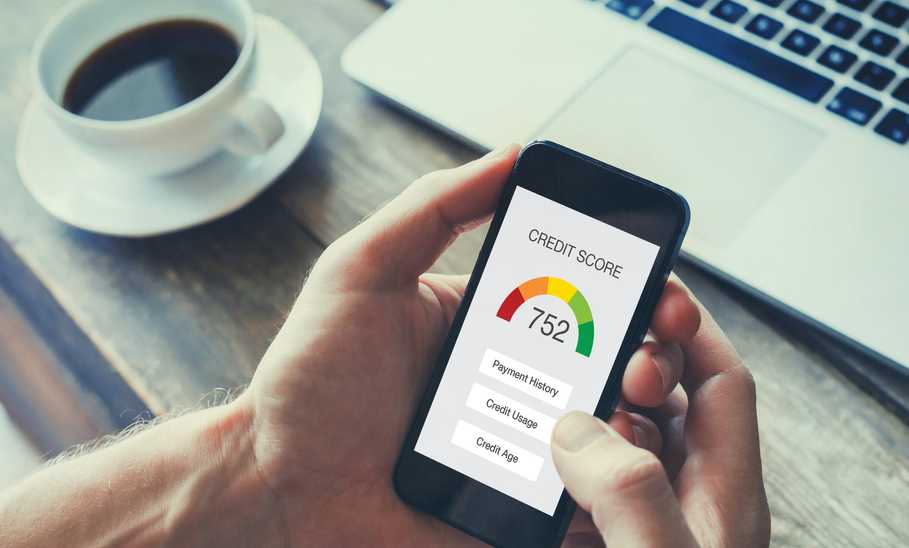What Is a Soft Inquiry? All You Need To Know

Our evaluations and opinions are not influenced by our advertising relationships, but we may earn a commission from our partners’ links. This content is created by TIME Stamped, under TIME’s direction and produced in accordance with TIME’s editorial guidelines and overseen by TIME’s editorial staff. Learn more about it.
Checking your credit reports regularly is a good way to see what’s helping—or hurting—your credit score. It can also help you spot errors on your reports or any suspicious activity that might indicate fraud.
This type of credit check is called a “soft inquiry” or “soft pull,” and it’s visible on your credit reports to you only. Soft inquiries don’t affect your credit scores, setting them apart from hard inquiries or hard pulls.
Aside from checking your own credit, there are some other scenarios where a soft inquiry might occur. It’s helpful to know how a soft inquiry works and when you might run into one.
A credit inquiry happens when you or someone else pulls a copy of your credit report using your Social Security number. Equifax, Experian, and TransUnion are the three consumer credit reporting agencies that issue these reports in the U.S.
Soft inquiries work by allowing you or someone else to view your reports without affecting your credit scores. Credit inquiries account for 10% of your FICO credit scores, which are the scores used by 90% of top lenders. FICO uses inquiries from the past 12 months to calculate your scores, although inquiries can stay on your credit reports for up to two years.
Soft inquiries can appear on your credit report, but they’re not visible to lenders, only to you. They’re not factored into credit score calculations, which means you can check your credit reports as many times as you’d like without dinging your scores at all.
A soft inquiry won’t affect your credit, but a hard inquiry can. Inquiries by authorized parties that show up on your credit reports and are visible to lenders are hard inquiries.
Examples of soft inquiries include:
When might you be subject to a hard credit check? Lenders may perform a hard pull if you’re:
In terms of how significant hard inquiries are when it comes to credit scoring, they carry less weight than your payment history or credit utilization. Depending on other factors in your credit report, you might only lose a few points for each new inquiry.
| Soft inquiries | Hard inquiries |
|---|---|
Soft pulls are credit checks performed by you or someone else for information purposes only. | Hard pulls are credit checks performed by someone else for lending purposes. |
Soft credit checks do not impact credit scores. | Hard credit checks do impact credit scores. |
Your permission isn’t required for soft pulls. | Lenders typically need written permission from you to perform a hard pull. |
Soft checks stay on your credit for up to two years, but only you can see them. | Hard checks stay on your credit for up to two years, and anyone who pulls your credit reports can see them. |
Lenders can use soft inquiries to preapprove borrowers for different types of loans and lines of credit. If you’re getting a rate quote or preapproval, it’s always a good idea to confirm beforehand that only a soft inquiry is required, not a hard credit check.
Here are some of the financial products that utilize soft inquiries.
Personal loans allow you to borrow a lump sum of money for virtually any purpose. For example, you could use a personal loan to consolidate debts, fund home repairs and renovations, pay for large expenses, or cover a financial emergency. It's not uncommon to find lenders that offer personal loan preapproval and rate quotes with a soft credit inquiry.
Upstart, for example, allows you to check your rates without affecting your credit score. You can borrow anywhere from $1,000 to $50,000 with an Upstart personal loan and take advantage of low, fixed interest rates. There’s no prepayment penalty for these loans.
Upgrade is another personal loan lender that offers free rate quotes without requiring a hard credit check. Similar to Upstart, Upgrade lends up from $1,000 to $50,000 for home improvements, debt consolidation, or large expenses. Rates are fixed, and there’s no prepayment penalty.
Keep in mind that if you decide to go ahead with applying for a personal loan, it likely will trigger a hard credit pull. Also, remember that different lenders may have different requirements when it comes to the minimum credit score you’ll need to be approved.
Refinancing student loans could help you streamline monthly payments and potentially lower your interest rate. If you’re shopping around for refinancing options, getting the best rates might be a top priority. You can refinance both private student loans and federal loans with a private lender.
SoFi offers student loan refinancing rate quotes without a hard credit check. You can choose between fixed or variable rate loans, and there are no loan origination fees, prepayment penalties, or late fees. SoFi offers an interest rate discount when you enroll in autopay.
Earnest is another option for refinancing student debt. You can compare rates with a soft credit check, and, should you decide to apply, you can choose between fixed or variable rates. Refinancing with Earnest may be a good fit if you’d like to remove a cosigner from an existing loan or have the option to set up biweekly automatic payments.
If you have federal student loans, you also can consolidate them through the Department of Education without a credit check. Consolidation is different from refinancing, as you’re combining multiple loans for an interest rate that is the average of the rates you currently pay for these loans. Also note that if you refinance or consolidate any federal student loans with a private lender you lose federal protections on those loans, including deferment, forbearance, cancellation and the affordable repayment option.
Refinancing a car loan could make sense if you’re trying to get a lower payment or interest rate. Car loan refinancing works like any other type of refinancing—you get a new loan to pay off the old one.
Checking your rates beforehand can help you decide if auto loan refinancing is a good option. It’s important to note that some lenders may require you to submit a full application to check rates, which would result in a hard inquiry.
RefiJet is one lender that allows you to check refinance rates without affecting credit. You might choose RefiJet if you want to change your loan term, remove a cosigner, or take a break from payments. You'll have no payment to make for the first three months after refinancing.
You can also compare rates without impacting credit scores at Caribou, which works with trusted lenders to bring you multiple refi offers in one place. You can browse loan options from different lenders, then choose which one for which you’d like to apply.
Refinancing a car loan usually requires excellent credit to get the best rates. When choosing a lender, it’s also a good idea to be on the lookout for any fees you might pay for a new loan.
Credit card companies can use soft credit pulls to prescreen you for different offers. If you’ve ever gotten an offer for a new credit card via paper mail or email, odds are the credit card company has done a soft check of your credit.
Applications for new cards, on the other hand, usually require a hard pull. Whether you’re subject to a hard pull or soft inquiry when applying for a credit limit increase can depend on the card. Some credit card companies perform a hard check if you ask them to raise your credit limit, while others may opt for a soft pull instead.
Insurance companies can use credit scores to assess risk when applying for different types of insurance policies. This can include car insurance, homeowner’s insurance, and life insurance. While not the only factor that matters, your credit scores can tell insurance companies how high the odds might be of having to pay out a claim.
When shopping around for insurance, you’ll likely have the option to compare quotes. If you need home or auto insurance, for example, Liberty Mutual allows you to get a rate quote online or over the phone without affecting credit. Liberty Mutual offers insurance coverage in all 50 states, though some discount programs may only be available in certain states.
If you need renter’s insurance, you might get quotes from Lemonade. Lemonade offers instant quotes online with no hard credit pull, and you can apply the same day. Plans start as low as $5 per month, making it one of the most affordable options for renters who want to protect their belongings.
The main benefit of soft credit inquiries is that they don’t affect your credit scores. That means if you’re shopping around for rates for a loan or doing a monthly review of your credit reports, you don’t have to worry about losing any points.
Soft inquiries have another benefit when it comes to comparing interest rates for different loans. If you’re trying to refinance student or car loans or get a personal loan, it’s helpful to know the kind of rates for which you might qualify. This way you can narrow down the list of loan options to find the right one for you.
While soft inquiries have some advantages, they also have a few downsides.
For one thing, you might find yourself being bombarded with prescreened credit card offers. While that won’t hurt your credit, it can get annoying. You can, however, reach out to the credit card companies to opt out of receiving them, which should help cut down the junk mail you receive.
Another drawback is that soft inquiries don’t eliminate the need for a hard inquiry if you plan to apply for a loan. At some point you’ll likely be asked to consent to a hard credit pull for any loans or lines of credit you’re hoping to get—you can’t use soft pulls to escape hard credit inquiries altogether.
Soft credit inquiries are a useful tool for exploring your options. If you’re interested in what is affecting your credit scores, you consider signing up for credit monitoring through a service such as Experian or myFICO. Credit monitoring services track changes to your credit reports that are reflected in your credit scores on a monthly basis. Reviewing your credit regularly can help you pinpoint what you can do to boost your scores over time.
Soft inquiries have no impact on credit scores, so there’s no worry about loss of points. Hard inquiries can, however, cause you to lose credit score points each time you apply for credit.
Credit freezes can block new credit from being issued in your name, and they may be used as a security measure if you’re concerned about fraud. When you have a freeze in place on your credit report, any new inquiries are blocked. You can, however, continue to check your own credit reports when they’re frozen.
Soft inquiries can stay on a credit report for up to two years, but they’re not visible to anyone other than you. During that time they don’t have any impact on your credit scores.
The information presented here is created by TIME Stamped and overseen by TIME editorial staff. To learn more, see our About Us page.



